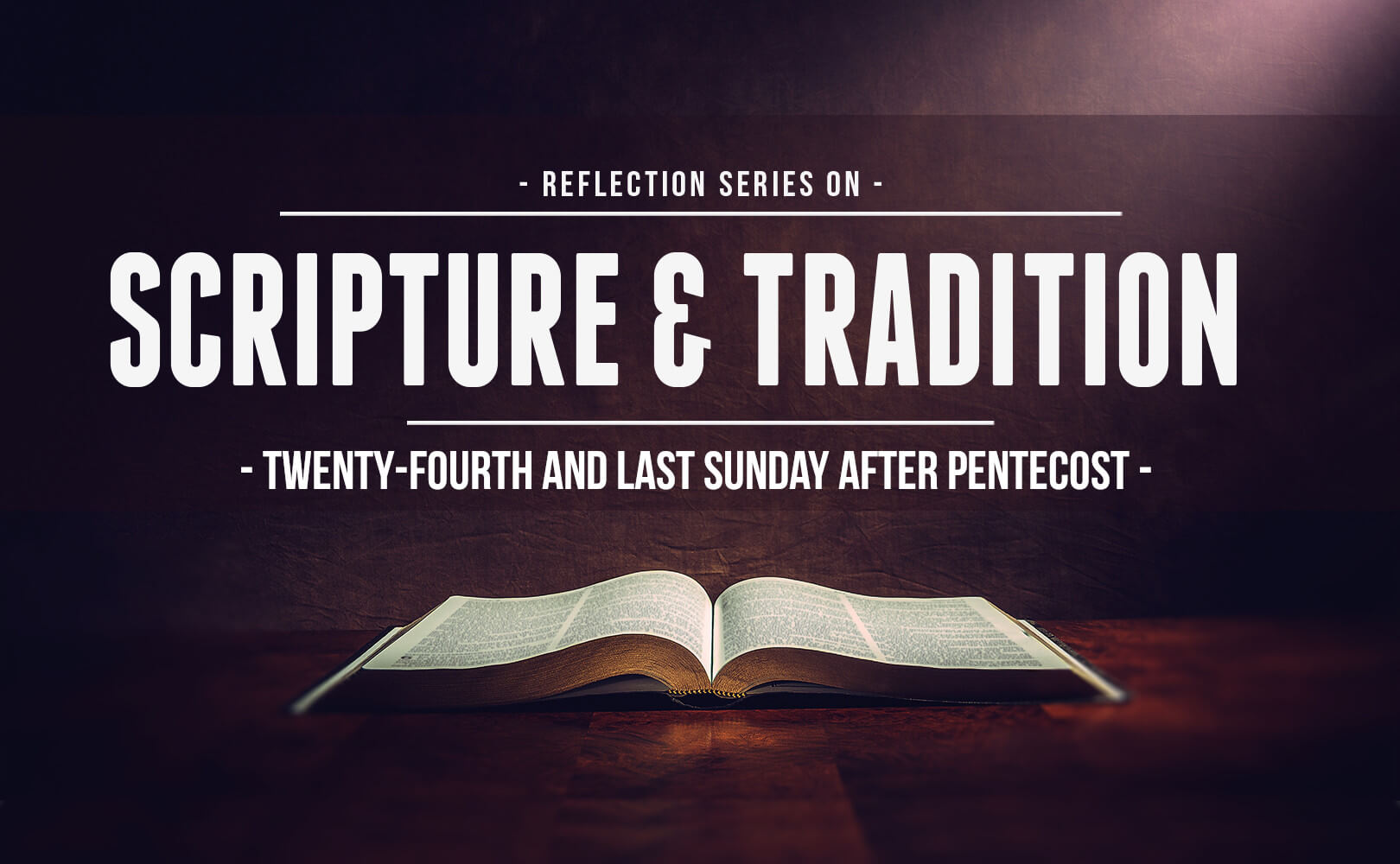Epistle: Colossians 1:9-14
Gospel: Matthew 24:15-25
Stir up the wills of Thy faithful people, we beseech Thee, O Lord: that more earnestly seeking the fruit of good works, they may receive more abundantly the gifts of Thy loving kindness.
– From the Collect for the Twenty-Fourth and Last Sunday after Pentecost
This Sunday is the Last Sunday after Pentecost, bringing us to the end of the liturgical year. It is fitting, then, that the Church asks us to contemplate the End of all things, when Christ will return in glory.
The 24th chapter of St. Matthew’s Gospel, from which Sunday’s Gospel is taken, consists of an “eschatological” discourse by Our Lord. The term “eschatological” means “concerning last things,” and in this discourse Christ is preparing his disciples for the “last things”: death, judgement, heaven, and hell.
Sometimes Scripture scholars get hung up on this discourse, trying to pigeon-hole it as a prediction of the fall of Jerusalem in 70 A.D., or a general warning about coming persecutions, or a specific description of Christ’s Second Coming. However, like much of Scripture, Our Lord’s discourse in Matthew 24 encompasses all these things and more. As followers of Christ, we are always to prepare ourselves for our end: whether that be by a peaceful death at an old age, during a vicious persecution, or at the End of Time with the Lord’s coming. No matter how we are to meet our end, we must be ready.
To be ready, first and foremost, is to cling to Christ and his teachings. Our Lord warns against those who might say, “Lo, here is Christ, or there.” He says “do not believe him; for there shall arise false Christs, and false prophets, and shall show great signs and wonders, insomuch as to deceive (if possible) even the elect.” In other words, many will claim to be representing Christ (or even being Christ), but a true disciple of Christ will always check what someone teaches against the perennial teachings of Christ’s body here on earth, the Church. As St. Jerome writes, “If anyone were to tell you that Christ dwells in the wilderness of the pagans or in the doctrine of the philosophers or within the inner chambers of heretics who promise to reveal the secrets of God, do not go out and do not believe them” (Commentary on Matthew 4). Christ is found in his Church and nowhere else.
How else can we be prepared for Christ’s coming? St. Paul writes to the Colossians in Sunday’s Epistle that the way to “walk worthy of God” is to live “in all patience and longsuffering with joy, giving thanks to God the Father, who hath made us worthy to be partakers of the lot of the saints in light.” We must be patient and endure persecution with joy, always giving thanks to God even when we experience suffering.
There is also another, liturgical, way we can be prepared for Christ’s glorious coming at the end of time. A few verses after the passage found in Sunday’s Gospel, Our Lord says, “For as lightning comes out of the east and appears even into the west: so shall also the coming of the Son of man be” (Mt 24:27). The Church sees the phrase “comes out of the east” as an indication that when Christ returns, he will come from the east, and as early as the fourth century St. Basil noted that facing east to pray was one of the oldest traditions in the Church. This is embedded in the liturgical tradition of “ad orientem,” which means “to the east.” Traditionally churches were oriented so that the congregation (and the priest) faced east when celebrating Mass, an outward manifestation that should inspire each person to have an inward readiness to meet the Lord upon his return.
No matter how we will eventually meet the Lord, it is a certainty that we will meet him one day. We must be ready so that when that great and terrible day comes, we will hear him say, “Well done, good and faithful servant…enter into the joy of your master” (Mt 25:23).


